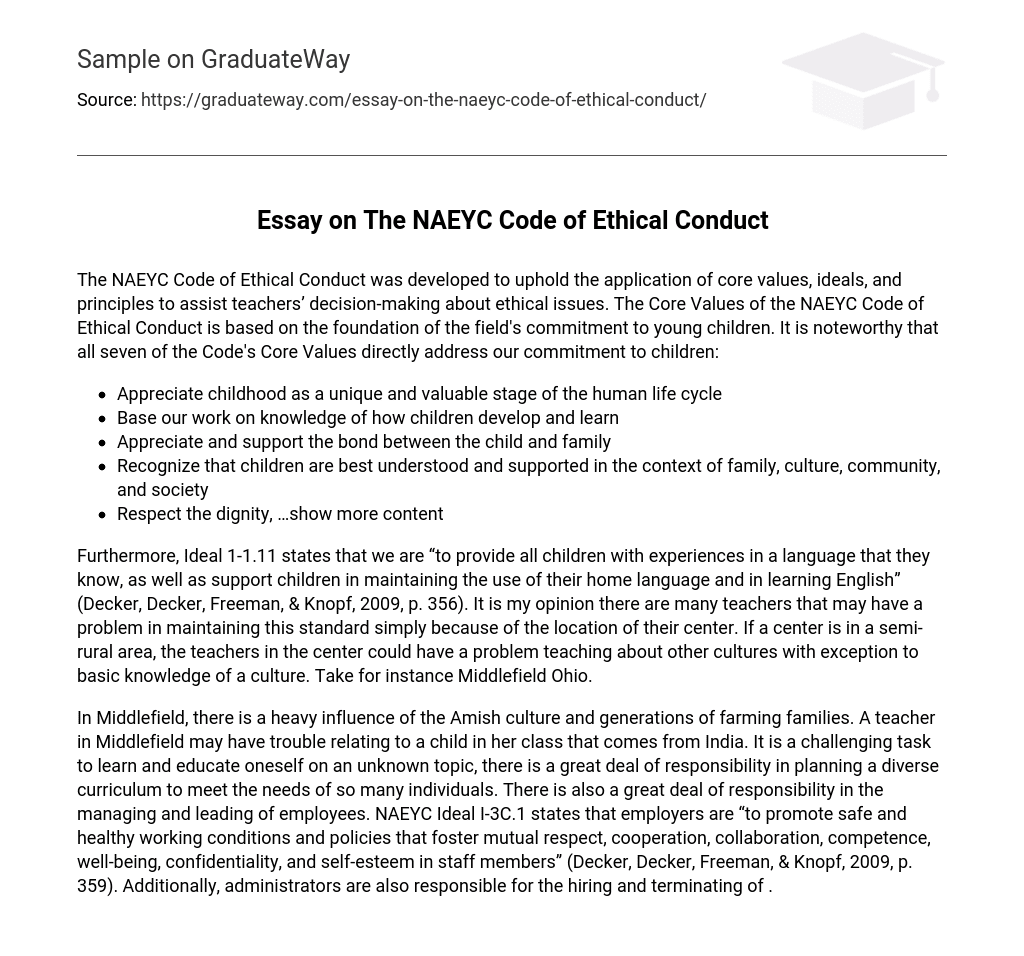The NAEYC Code of Ethical Conduct was created to support teachers in making ethical decisions by applying fundamental values, ideals, and principles. The Core Values of the NAEYC Code of Ethical Conduct are founded on the field’s dedication to young children. It is important to note that all seven Core Values of the Code specifically focus on our commitment to children.
- Appreciate childhood as a unique and valuable stage of the human life cycle
- Base our work on knowledge of how children develop and learn
- Appreciate and support the bond between the child and family
- Recognize that children are best understood and supported in the context of family, culture, community, and society
- Respect the dignity, …show more content
Ideal 1-1.11 emphasizes the importance of providing children with language experiences in their native language and supporting them in learning English (Decker, Decker, Freeman, & Knopf, 2009, p. 356). However, some teachers may struggle to meet this requirement due to the location of their center. In semi-rural areas like Middlefield Ohio, teachers may face challenges in teaching about different cultures beyond basic knowledge.
Middlefield is heavily influenced by the Amish culture and has a long history of farming families. In this context, a teacher in Middlefield may face challenges in connecting with a student from India. Learning about unfamiliar topics and planning a diverse curriculum to meet the needs of a diverse group of individuals requires significant effort and responsibility. Managing and leading employees also carries a great deal of responsibility. According to NAEYC Ideal I-3C.1, employers should promote safe and healthy working conditions, as well as foster mutual respect, cooperation, collaboration, competence, well-being, confidentiality, and self-esteem in staff members (Decker, Decker, Freeman, & Knopf, 2009, p. 359). Administrators are also accountable for the hiring and termination processes.





